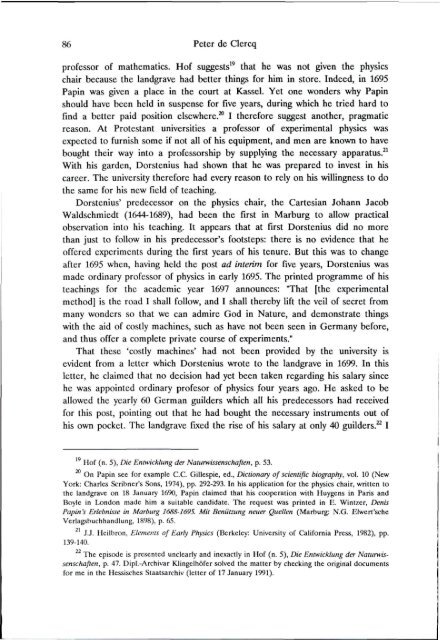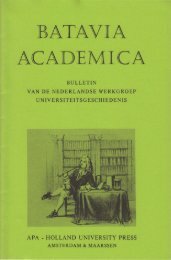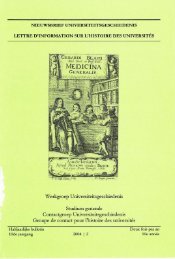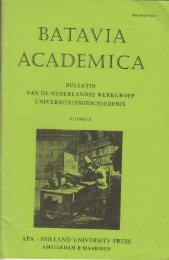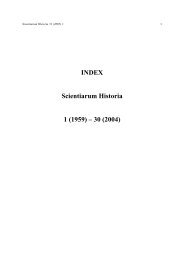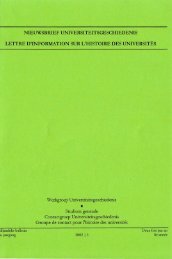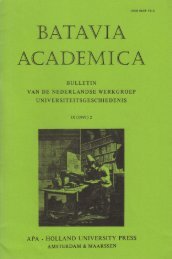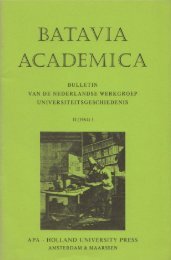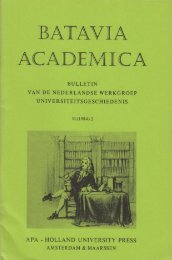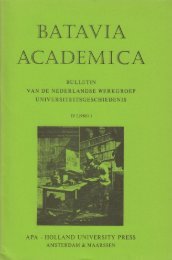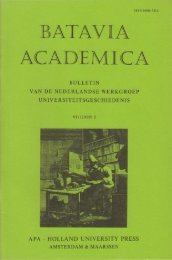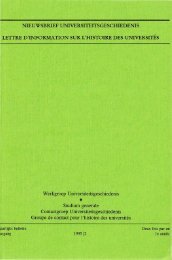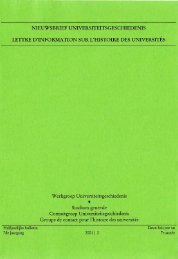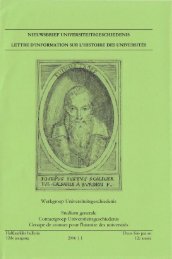EXPORTING SCIENTIFIC INSTRUMENTS AROUND 1700 - Gewina
EXPORTING SCIENTIFIC INSTRUMENTS AROUND 1700 - Gewina
EXPORTING SCIENTIFIC INSTRUMENTS AROUND 1700 - Gewina
You also want an ePaper? Increase the reach of your titles
YUMPU automatically turns print PDFs into web optimized ePapers that Google loves.
86 Peter de Clercq<br />
professor of mathematics. Hof suggests" that he was not given the physics<br />
chair because the landgrave had better things for him in store. Indeed, in 1695<br />
Papin was given a place in the court at Kassel. Yet one wonders why Papin<br />
should have been held in suspense for five years, during which he tried hard to<br />
find a better paid position elsewhere.^ I therefore suggest another, pragmatic<br />
reason. At Protestant universities a professor of experimental physics was<br />
expected to furnish some if not all of his equipment, and men are known to have<br />
bought their way into a professorship by supplying the necessary apparatus.^'<br />
With his garden, Dorstenius had shown that he was prepared to invest in his<br />
career. The university therefore had every reason to rely on his willingness to do<br />
the same for his new field of teaching.<br />
Dorstenius' predecessor on the physics chair, the Cartesian Johann Jacob<br />
Waldschmiedt (1()44-1689), had been the first in Marburg to allow practical<br />
observation into his teaching. It appears that at first Dorstenius did no more<br />
than just to follow in his predecessor's footsteps: there is no evidence that he<br />
offered experiments during the first years of his tenure. But this was to change<br />
after 1695 when, having held the post ad interim for five years, Dorstenius was<br />
made ordinary professor of physics in early 1695. The printed programme of his<br />
teachings for the academic year 1697 announces: "That [the experimental<br />
method] is the road I shall follow, and I shall thereby lift the veil of secret from<br />
many wonders so that we can admire God in Nature, and demonstrate things<br />
with the aid of co.stly machines, such as have not been seen in Germany before,<br />
and thus offer a complete private course of experiments."<br />
That these 'costly machines' had not been provided by the university is<br />
evident from a letter which Dorstenius wrote to the landgrave in 1699. In this<br />
letter, he claimed that no decision had yet been taken regarding his salary since<br />
he was appointed ordinary profesor of physics four years ago. He asked to be<br />
allowed the yearly 60 German guilders which all his predecessors had received<br />
for this post, pointing out that he had bought the necessary instruments out of<br />
his own pocket. The landgrave fixed the rise of his salary at only 40 guilders." I<br />
Hof (n. 5), Die Entwicklung der Naturwissenschaften, p. 53.<br />
On Papin see for example C.C. Gillespie, ed., Dictionary of scientific biography, vol. 10 (New<br />
York: Charles Scribner's Sons, 1974), pp. 292-293. In his application for the physics chair, written to<br />
the landgrave on 18 January 1690, Papin claimed that his cooperation with Iluygens in Paris and<br />
Boyle in London made him a suitable candidate. The request was printed in E. Wintzer, Denis<br />
Papin's Eriebnisse in Marburg 16S8-1695. Mit Beniitzung neuer Quetlen (Marburg: N.G. Elwert'sche<br />
Verlagsbuchhandlung, 1898), p. 65.<br />
' J.J. Hcilbron, Elements of Early Physics (Berkeley: University of California Press, 1982), pp.<br />
1.39-140.<br />
ITie episode is presented unclearly and inexactly in I lof (n. 5), Die Entwicklung der Naturwissenschaften,<br />
p. 47. Dipl.-Archivar Klingelhofer solved the matter by checking the original documents<br />
for me in the Hessisches Staatsarchiv (letter of 17 January 1991).


